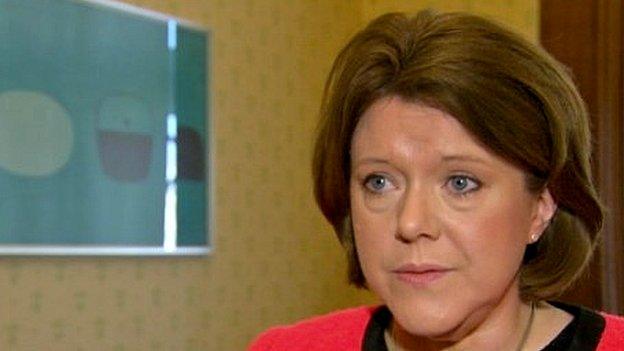What should be the new culture secretary's top priorities?
- Published
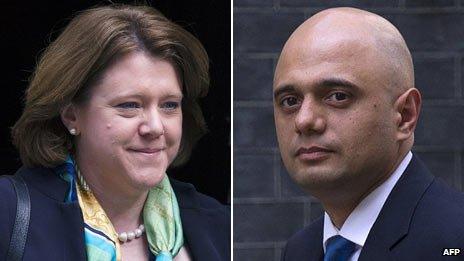
Sajid Javid (r) was confirmed as Maria Miller's successor on Wednesday
Sajid Javid, the Conservative MP for Bromsgrove, has been appointed culture secretary by David Cameron following the resignation of Maria Miller.
Born in Rochdale in 1969, the 44-year-old former banker has been promoted from his previous role as Financial Secretary to the Treasury.
A lot will be waiting for this bus driver's son at the Department of Culture, Media and Sport (DCMS). But what should be top of his list of priorities?
The BBC News website asked the editors of four publications that focus on the arts and the creative industries what their readers want from him.
FILM - Wendy Mitchell, editor, Screen International

Gravity was classified as a British film and was eligible for UK tax relief
I think what the UK film industry wants most from government is a sense of stability, particularly in the continuation of the tax credit for film, which is an essential piece of the puzzle for keeping the British film industry surviving and thriving.
What would be disastrous is if the new minister would make any sort of rash decision without consulting industry, the way Jeremy Hunt did in suddenly abolishing the UK Film Council. Now that the BFI is the lead agency for film, they need to be allowed to just get on with the jobs at hand.
Chris Smith's film policy review and its follow-up review have laid out a clear plan of action. The hope is that any new minister will help the experts get on with that plan, not muddy the waters with their own input at this stage.
It has to be said that culture minister Ed Vaizey has been a consistent and interested governmental voice about the film industry for a number of years. That's an asset for a new culture secretary, to have Vaizey's perspective after he's taken a genuine interest in understanding the industry.
But in short, the tax credit's stability, or even furthering it as recently proposed, is the most important thing that the culture secretary needs to protect.
MUSIC - Tim Ingham, editor, Music Week

Adele and Ed Sheeran are among the British artists to emerge in recent years
I think the vast majority of people in the music industry are pretty sick and tired of seeing music not regarded as one of the government's favoured creative industries.
Video games, TV and the animation industry all recently won tax relief in an announcement that was supposed to cover all the creative industries. Music once again was forgotten in that round.
The industry has obviously been very hurt by copyright infringement over the past 15 years, particularly online. I think it's fair to say it would like to see action from government to assist with that.
UK music as a net export is a huge success story for the UK and they would also like to see that reflected in policy making. I think it will be a huge relief if Sajid Javid acknowledged the music industry alongside the more tech-touched industries that have a sort of halo effect around them at the moment, from video games to animation to online programme making.
There seems to be a belief within the current government that the UK tech industries are the only area for growth. But without content and without owning the rights to the things people want to be entertained by and engaged with, you don't have an industry. That's a message the music industry will want the culture secretary to be driving home at cabinet meetings.
Music content is more widely listened to than ever before and the industry just wants to see it protected. We've seen Adele and Ed Sheeran and other artists emerge on the world stage in the last five years, so it would also be lovely to see if some sort of tax relief could help bring through the next era of British artists.
PERFORMING ARTS - Alistair Smith, acting editor, The Stage

New proposals could make it easier for shows like Happy Days to tour
In terms of theatre and the performing arts, I would say getting the proposed tax relief that's coming in later this year right and making sure the details are ironed out and making sure it's the one that works best for the sector has got to be near the top of his list.
The last budget announced a brand new tax relief for theatre investment along the lines of the film tax relief that already exists. It's a Treasury document, external so it won't be directly Sajid Javid's brief. But it is his sector that it's going to affect, so I would have thought he'll be involved in getting it put through.
Another area that Maria Miller wasn't as active in as she could have been, was the role of the DCMS in encouraging local authorities to fund culture. If there's one big funding issue in the arts from a theatre point of view, it's local council funding. I don't think enough has been done to encourage local authorities to continue their support for the arts.
The third thing is working with the Department of Education to ensure that funding levels at arts training institutions are retained as much as possible, because a lot of drama schools are feeling the pinch at the moment.
Hopefully the new culture secretary can bring some knowledge of how the Treasury works into the arts sector, to help it make a better case for funding and make the argument in a way the Treasury understands.
VISUAL ARTS - Jane Morris, editor The Art Newspaper
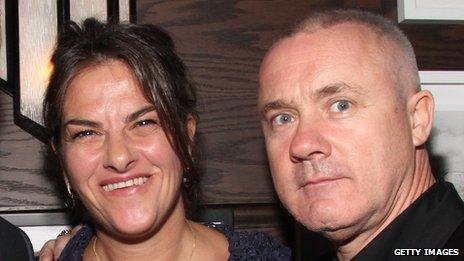
Tracey Emin and Damien Hirst were two of the most prominent "YBAs"
The first thing is it's important to appear interested. It's important to be seen at things, to go and visit things and get to know the art world.
And it's important not just to be seen at the National Gallery or the Tate, but to take some time to visit small arts organisations out in the regions. It helps a lot if the impression is that the culture secretary is genuinely interested - that always wins friends.
Number two is obviously the issues around funding. The Conservative Party has increasingly started talking the language of art and the economy; they seem to see it very much from the economic aspect.
Now art does have an economic value, but I think people feel in our world that arts offer more than economic value. Museums, art exhibitions, cultural events have a social benefit, an educational benefit, and I think it would be good for the secretary to understand that.
Abroad, this is what we're known for. People like Thomas Heatherwick, Jonathan Ive, all the YBAs [Young British Artists] - people know who they are. Abroad, our art output is seen as a very important thing.
But those people nearly all grew up at a time when art school was relatively cheap to go to and it was less of a risk. Becoming a really good artist is a long slow and painful process and it would be good for that to be understood. That's something the art world in the UK feels has got lost in the mix.
I think we want a culture secretary who would be looking to protect the Arts Council and museums from any other cuts, and who really understands the educational and social benefit of the arts, from school to museum-visiting as an adult.
There's also the issue around smaller arts organisations that tend to get funded through local authority budgets. There have been cuts at the local authority level that have affected arts in the region quite badly, and there's a general feeling that the regions have slid down the priority list.
The minister could also do his best to persuade the Treasury to make it more attractive for the very wealthy to donate money and art, and not just to big institutions like the Tate. They should also be encouraged to give more money to museums and organisations in the regions.
And there's one final point. We really ought to sign the Hague Convention, external, which is all about the protection of heritage in war-torn countries. I know there have been cross-party moves to get the convention signed, but we haven't signed it. It's something the DCMS could take a lead on, in tandem with the Foreign Office.
- Published9 April 2014
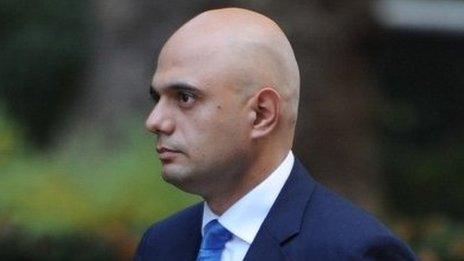
- Published9 April 2014
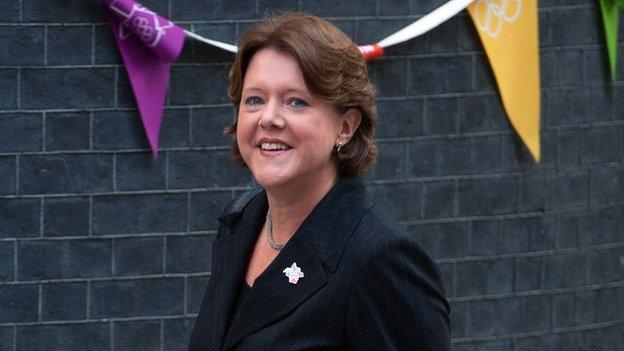
- Published9 April 2014
